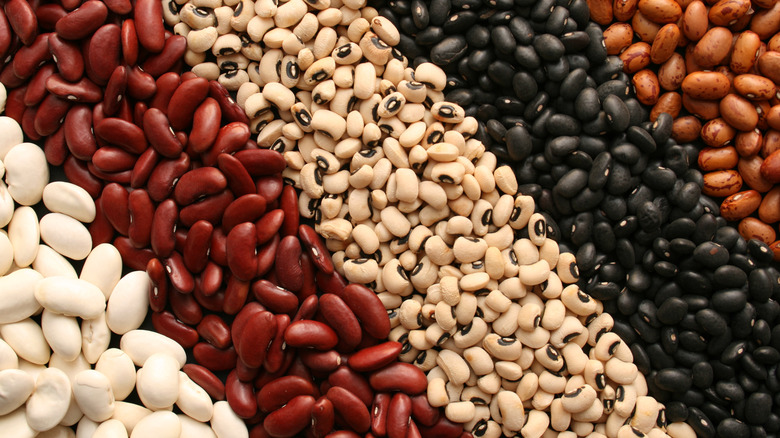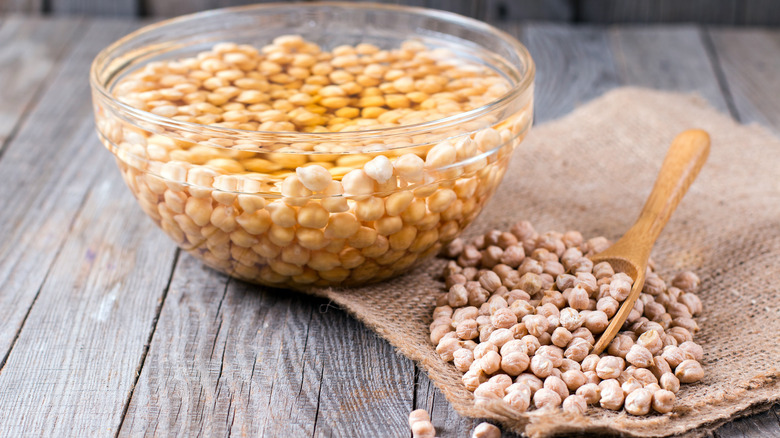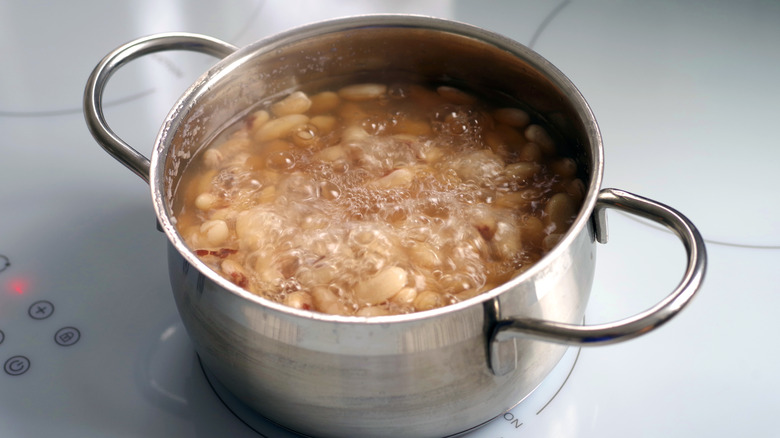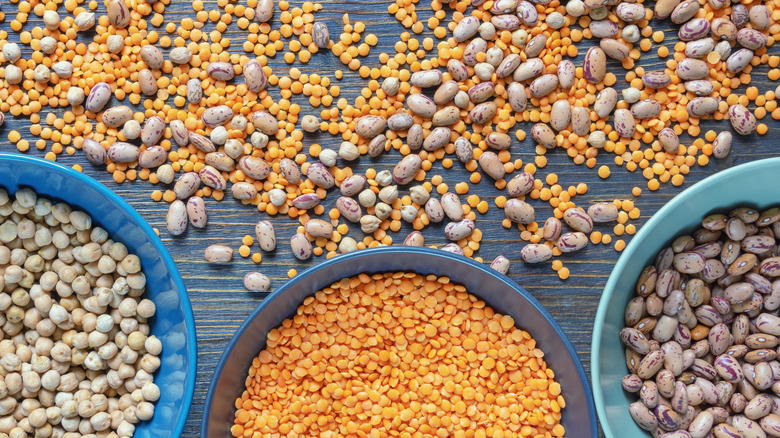Do You Really Need To Soak Dried Beans? Here's What The Pros Say
Soaking dried beans is a widely accepted cooking standard that many home chefs consider a given. But is it really crucial, or even desirable? Bean cooking myths abound, so we decided to give this persistent bit of kitchen wisdom a deeper look. We consulted with not just one, but three, experts who know a thing or two about beans. What we discovered in the "soak or not soak" debate is a bit surprising, mostly because there's no hard-and-fast consensus across the board.
When cooking beans from scratch, the basics matter. With two of our experts, there's not much disagreement over what bean-soaking actually achieves. That's also true when discussing how long to soak if you choose to do so. But on the topic of whether it's actually necessary or beneficial to soak, some nuanced perspectives arose. Whether from a respected professional chef, recipe developer, or cookbook author, we took their wisdom to heart. Here's what they have to say about extended aqua baths for these popular legumes.
Dried beans: to soak or not to soak
The primary question is whether it's actually essential to soak beans before cooking, and the answer from two culinary professionals was a conditional yes. Chef Guara Pimenta of Vela Seaport adheres mostly to pre-soaking, stating that it definitely has its perks. "Soaking beans can speed up cooking and ensure they cook uniformly," he says, "And let's not forget, it's a good way to rid the beans of any lingering dirt or debris." It also helps with digestion and enhances texture. However, Pimenta acknowledges that it really comes down to the chef's preference, as well as the available time for getting beans on tables. It's still entirely possible to cook dry beans without soaking: "Just be prepared for a longer cooking duration, and keep a closer eye on them to ensure they cook evenly."
Our second expert is Remy Morimoto Park, the popular recipe developer and creator behind Veggiekins and cookbook author – IG @veggiekins. She pretty much concurs, noting that rehydration softens the beans. "It also makes [them] slightly easier to digest," she explains, "and for those who struggle with gas or bloating when consuming beans, it can help to reduce that discomfort."
There's some science behind that observation. It centers on the presence of oligosaccharides, a type of carbohydrate residing in un-soaked dried beans. It's notoriously hard to digest, thus the gas. However, pre-soaking can pull up to 90% of oligosaccharides into the water instead of into your body.
An alternative perspective: Skip the soaking for better flavor and less fuss
Our next expert made no bones about it. "I never soak my beans," says Rick Martinez, Author of "Mi Cocina: Recipes and Rapture from my Kitchen in Mexico" – IG @chefrickmartinez. He's also not shy about having such a strong opinion. "Beans are like a sponge," he explains. "When you soak them, they double in volume because of how much water they absorb. So when you cook them and taste them, guess what they taste like? Water."
Coming from a prolific bean-loving family, Martinez recalls his parents and grandparents preparing beans multiple times a week — with zero soaking. There's no need to do that, in his opinion, because beans don't take all day to cook even when they start out dry and hard. The exact cooking hours vary based on when the beans were picked from the fields and how long they've lived in-store and in-pantry since then. His rough estimate of stovetop dry-bean cook times ranges from 1.5 to 3.5 hours in the pot, compared to about an hour less with pre-soaked beans.
Martinez also points out that a longer cooking time results in greater flavor development and a richer broth, which he calls delicious. And there's no need to stand over the boiling pot, watching and stirring. He says, "Just read a book, watch TV, play with the kids, hang out with the dog" while the beans do their thing.
If you soak: best techniques for clean and creamy beans
If you do soak, plan way ahead, allowing at least eight hours, according to Guara Pimenta, or 10 to 12 hours, per Park. Times for properly soaked beans can differ based on the type of bean, but a safe bet is to let them slumber in water overnight. However, if time is tight and you're craving beans in a pinch, says Remy Morimoto Park, some soaking is better than none. Even a few hours in cool water reduces cooking time. After soaking, replace the liquid with fresh water.
All three experts concur on sorting through the beans to eliminate any dirt, debris, small rocks, or undesirable beans. Rick Martinez recommends tossing them on a sheet tray for examination and rinsing them under cold water to remove dust. He also gives some tips on water ratios, seasoning, and slow-boiling techniques.
"I cook one pound of beans in 4 quarts of water, 20 grams salt (5 teaspoons Diamond Crystal), 3 garlic cloves, some type of other alium like 1/4 onion or a large shallot, or three scallions and a handful of your favorite fresh herbs," says Martinez. It's important to simmer the beans, uncovered, over a low flame until they're soft and tender. When you see the beans poking through the surface, add more water. "If you boil too hard, the beans will break apart and your broth will be cloudy," he explains. "I love a clear bean broth, and that means low simmer."



